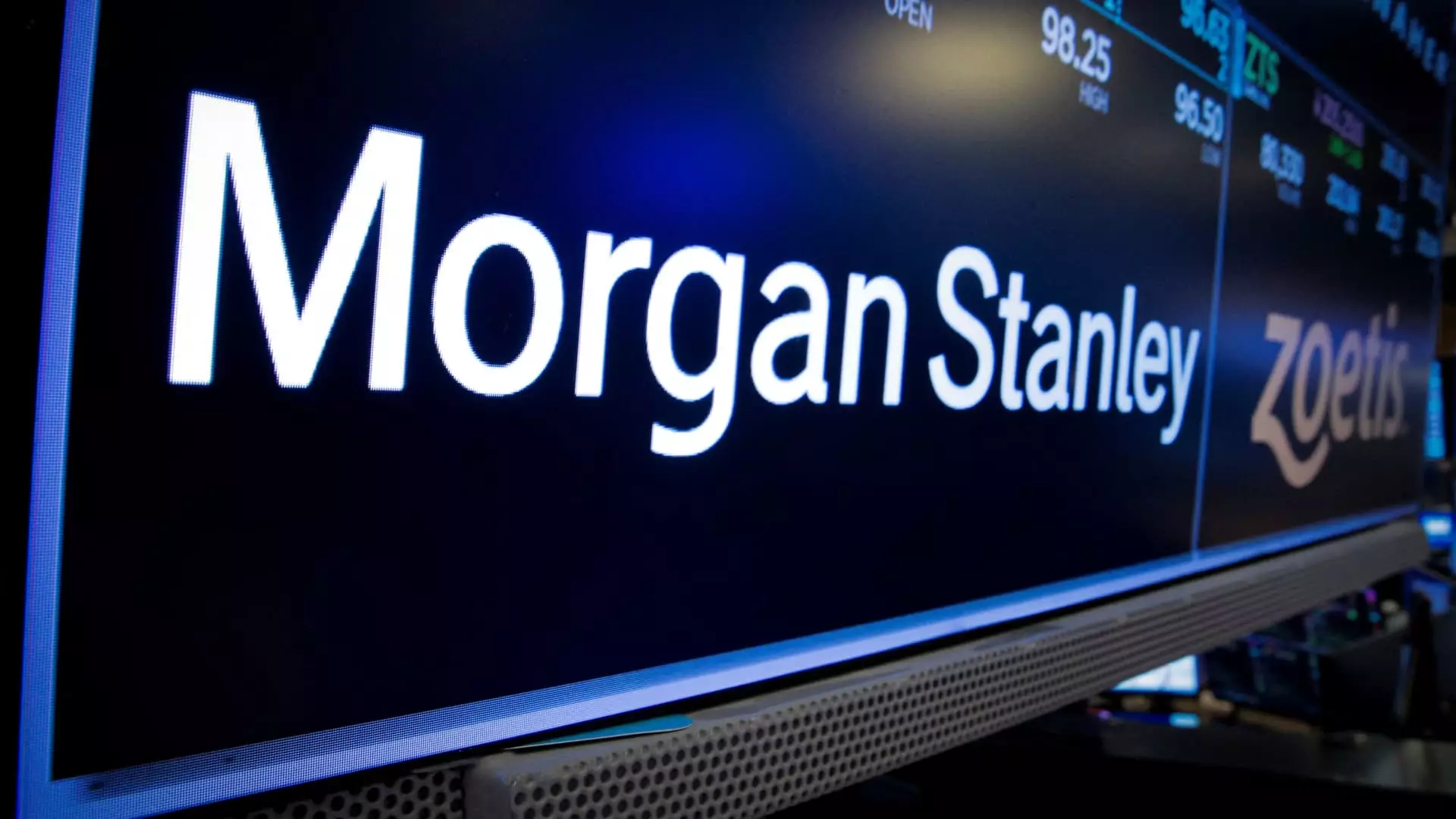Transforming Investment Banking: The Impact of AI at Morgan Stanley

In an era where technology is constantly reshaping industries, the financial sector is no exception. Morgan Stanley, one of the leading investment banks, is leveraging the power of generative artificial intelligence (AI) to revolutionize its operations, particularly within its investment banking and trading divisions. This move marks a significant step as the firm seeks to enhance productivity and efficiency while providing its workforce with advanced tools to streamline their processes.
The adoption of OpenAI’s technologies is not merely a trend; it aligns with a broader shift within Wall Street where firms are integrating advanced AI solutions into their daily operations. The firm first implemented a generative AI assistant based on ChatGPT technology earlier in 2023, specifically targeting wealth management advisors. Following this initial success, Morgan Stanley has expanded its AI capabilities by trialing a tool known as AskResearchGPT, tailored for its institutional securities group.
One of the primary functions of AskResearchGPT is to simplify the labor-intensive task of sifting through an avalanche of financial reports. With Morgan Stanley producing over 70,000 research documents annually, employees are often inundated with extensive data. Katy Huberty, the bank’s global director of research, noted that this AI-enabled tool can drastically reduce the time spent in research activities, allowing users to quickly obtain valuable insights on various topics, including stocks, commodities, and industry trends.
From a productivity standpoint, the introduction of AskResearchGPT is seen as a “game-changer.” Huberty emphasized the efficiency gains not only for research analysts but also for a broader range of personnel across the institutional securities divisions. By giving employees access to high-quality information in a fraction of the time, the tool exemplifies how AI can be harnessed to bolster decision-making and enhance client relations.
AI Adoption Across the Workforce
Morgan Stanley’s aggressive integration of generative AI tools is indicative of a larger trend within the financial industry. Reports suggest that nearly half of Morgan Stanley’s workforce, consisting of 80,000 employees, have started using AI solutions powered by OpenAI. In comparison, at JPMorgan Chase, around 60% of its vast team of over 316,000 employees have access to similar platforms. This widespread adoption illustrates a collective acknowledgment within Wall Street of the benefits that AI can bring to operational efficiency.
The drive to utilize AI to cater to immediate needs has transformed the way staff interact with research data. Huberty revealed that employees are using AskResearchGPT to submit inquiries three times more frequently than they did with a previous AI platform that had been in place since 2017. Such a dramatic increase speaks volumes about the intuitiveness and relevance of the new tool in daily workflows. Its popularity is particularly pronounced among salespeople and those on the front lines of client engagement, reinforcing the idea that quick, insightful information is pivotal in addressing institutional investors’ queries.
The impacts of generative AI are not limited to efficiency improvements alone. The technology holds the potential to fundamentally alter the landscape of investment banking and trading by enabling professionals to engage with intricate market analyses actively. In practical demonstrations, AskResearchGPT showcased its ability to synthesize Morgan Stanley’s perspectives on an array of topics, adeptly handling specialized language and presenting graphical data and links to source materials with ease.
In light of these productivity benefits, Morgan Stanley is pushing for further integration of AI tools throughout its workforce. The positioning of AskResearchGPT within commonly used applications such as Microsoft Teams and Outlook signifies a commitment to making AI tools seamlessly accessible, ensuring that every employee can utilize these technologies to enhance their productivity and decision-making capabilities.
As generative AI continues to proliferate in the financial sector, the contributions of firms like Morgan Stanley serve as a beacon for the future. The strategic incorporation of AI not only promises significant improvements in operational efficiency but also heralds a new era of insightful decision-making that could redefine investment banking. With technological advancements accelerating at such a rapid pace, observing how institutions adapt will be critical for understanding the future landscape of finance.





